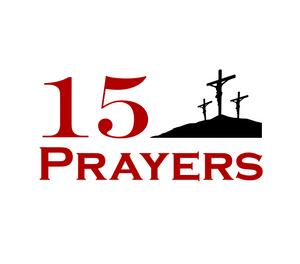
Book XV
The progress of the earthly and heavenly cities traced by the sacred history.
Chapter 1
Of the two lines of the human race which from first to last divide it.
Chapter 2
Of the children of the flesh and the children of the promise.
Chapter 3
That Sarah’s barrenness was made productive by God’s grace.
Chapter 4
Of the conflict and peace of the earthly city.
Chapter 5
Of the fratricidal act of the founder of the earthly city, and the corresponding crime of the
founder of Rome.Chapter 6
Of the weaknesses which even the citizens of the city of God suffer during this earthly pilgrimage in punishment of sin, and of which they are healed by God’s care.
Chapter 7
Of the cause of Cain’s crime and his obstinacy, which not even the word of God could subdue.
Chapter 8
What Cain’s reason was for building a city so early in the history of the human race.
Chapter 9
Of the long life and greater stature of the antediluvians.
Chapter 10
Of the different computation of the ages of the antediluvians, given by the Hebrew
manuscripts and by our own.Chapter 11
Of Methuselah’s age, which seems to extend fourteen years beyond the deluge.
Chapter 12
Of the opinion of those who do not believe that in these primitive times men lived so long as
is stated.Chapter 13
Whether, in computing years, we ought to follow the Hebrew or the Septuagint.
Chapter 14
That the years in those ancient times were of the same length as our own.
Chapter 15
Whether it is credible that the men of the primitive age abstained from sexual intercourse until that date at which it is recorded that they begat children.
Chapter 16
Of marriage between blood-relations, in regard to which the present law could not bind the
men of the earliest ages.Chapter 17
Of the two fathers and leaders who sprang from one progenitor.
Chapter 18
The significance of Abel, Seth, and Enos to Christ and His body the Church.
Chapter 19
The significance of Enoch’s translation.
Chapter 20
How it is that Cain’s line terminates in the eighth generation, while Noah, though descended
from the same father, Adam, is found to be the tenth from him.Chapter 21
Why it is that, as soon as Cain’s son Enoch has been named, the genealogy is forthwith
continued as far as the deluge, while after the mention of Enos, Seth’s son, the narrative returns again to the creation of man.Chapter 22
Of the fall of the sons of God who were captivated by the daughters of men, whereby all, with the exception of eight persons, deservedly perished in the deluge.
Chapter 23
Whether we are to believe that angels, who are of a spiritual substance, fell in love with the
beauty of women, and sought them in marriage, and that from this connection giants were born.Chapter 24
How we are to understand this which the Lord said to those who were to perish in the flood:
“Their days shall be 120 years”.Chapter 25
Of the anger of God, which does not inflame His mind, nor disturb His unchangeable tranquillity.
Chapter 26
That the ark which Noah was ordered to make figures in every respect Christ and the church.
Chapter 27
Of the ark and the deluge, and that we cannot agree with those who receive the bare history,
but reject the allegorical interpretation, nor with those who maintain the figurative and not the
historical meaning.

